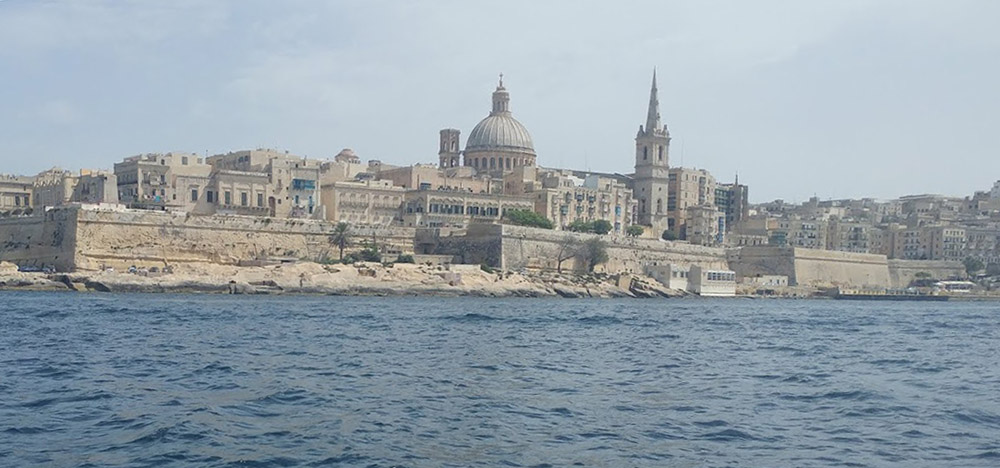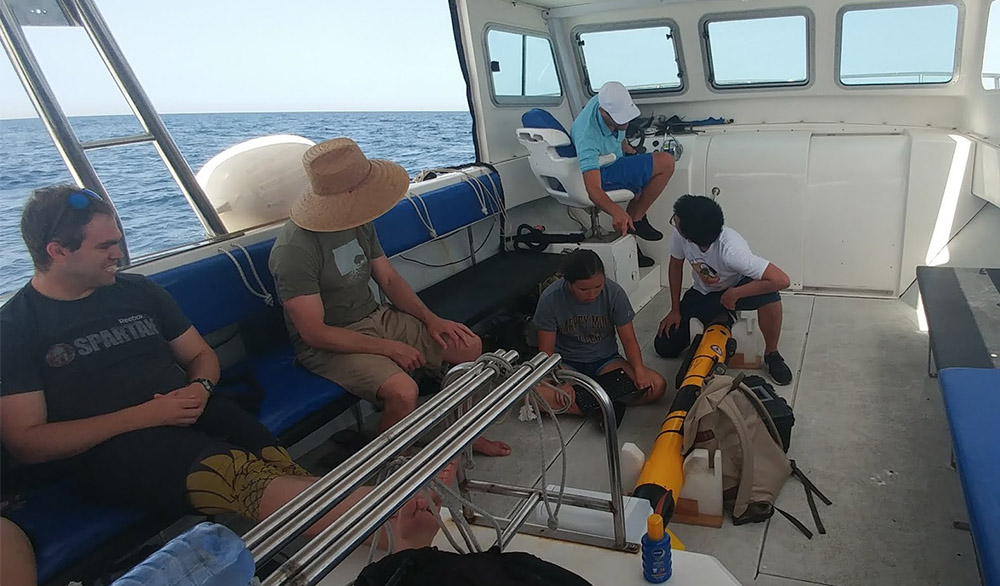Intelligent Shipwreck Search in Malta
June 13, 2018
For the third and final year of a National Science Foundation (NSF)-funded project, Harvey Mudd College students Makoto Nara, Russell Bingham, Samantha Ting and Nandeeka Nayak have traveled to Malta with engineering professor Christopher Clark and literature professor Ambereen Dadabhoy. This work, a collaboration with research teams led by Professor Zoe Wood from Cal Poly, San Luis Obispo and Professor Timmy Gambin from University of Malta, aims to develop new technology for finding undiscovered shipwrecks, mapping them and visualizing them with 3-D reconstructions.
Much of the work stems from researching new machine learning algorithms to identify wrecks from sonar data collected by an autonomous underwater vehicle (AUV), as well AUV path planning algorithms for capturing the best camera images for generating 3-D digital reconstructions.
In parallel with these efforts, the team will learn about Malta’s history and culture through a series of evening lectures and cultural excursions. Malta’s location in the Mediterranean not only offers a large number of underwater archeological sites to study, but a rich multi-cultural history.

Students prepare to launch an AUV near Malta to search for shipwrecks by collecting sonar data.
While Clark leads the robotics research aspect of the project, and Wood the computer graphics, Dadabhoy is starting new investigations into Mediterranean piracy and slavery in the early modern period. Travel to Malta provides access to archives in the National Library of Malta, where she can access primary documents on Maltese corsair activities to trace how the practices of slavery crossed religious and cultural divides, often disrupting popular constructions of cultural conflict and clashes of civilizations.
This project falls under the umbrella of the International Computer Engineering Program (ICEX) co-founded by Clark and Christine Victorino (UC Riverside). The goal of the ICEX program is to provide students an opportunity to apply their technical knowledge in an international context, to further their research education and to increase global citizenship across campus. The program has been running for 10 years and has taken students to Norway, Malta and Costa Rica.
To track the research team on the expedition, visit the ICEX blog.
